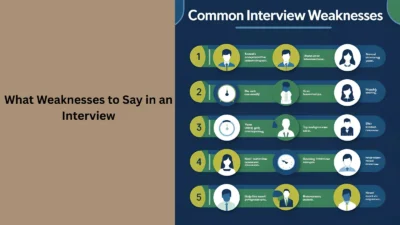Losing a pregnancy is a heartbreaking experience, and finding the right words to comfort someone can feel overwhelming. You want to show you care, but it’s easy to worry about saying the wrong thing. Knowing what to say to someone who miscarried can make a big difference in offering support during their grief.
This guide will help you navigate this sensitive moment with kindness and empathy. Whether it’s a friend, family member, or coworker, your words can provide comfort when they need it most.
We’ll share practical tips, real-life examples, and phrases to avoid, so you can approach the conversation with confidence and care. Let’s explore how to offer meaningful support.
Acknowledge Their Loss with Empathy
When someone experiences a miscarriage, they’re grieving a real loss. Acknowledging their pain shows you see their hurt and care about their feelings. Be gentle and sincere, and let them know you’re there for them.
Scenario: Your coworker Sarah shares she had a miscarriage. You want to comfort her without being pushy.
What to say: “Sarah, I’m so sorry for your loss. I’m here if you need to talk or just want company.”
What not to say: “It wasn’t meant to be.” This can feel dismissive and hurtful.
Keep it simple and heartfelt. Your goal is to show you understand their sorrow without forcing them to talk.
Offer Support Without Fixing It
People often want to “fix” someone’s pain, but miscarriage grief doesn’t work that way. Offering support means being present, not solving the problem. Let them know you’re ready to help in ways that feel right for them.
Scenario: Your friend Mia is quiet after her miscarriage. You want to help but don’t know how.
What to say: “Mia, I’m here for you. If you need a listener, a meal, or anything else, just let me know.”
What not to say: “You can always try again.” This minimizes their current loss and can feel insensitive.
Ask how you can help, whether it’s running errands or just sitting together. Small gestures show you care.
Avoid Clichés and Comparisons
It’s tempting to use common phrases to fill the silence, but clichés can hurt more than help. Comparisons to other losses or optimistic sayings often feel empty to someone grieving.
Scenario: Your sister-in-law Emma opens up about her miscarriage at a family dinner.
What to say: “Emma, I can’t imagine how hard this is. I’m here for you, no matter what.”
What not to say: “Everything happens for a reason.” This can feel like their pain doesn’t matter.
Stick to words that validate their feelings. If you’re unsure, it’s okay to say, “I don’t know what to say, but I’m here.”
Respect Their Space and Timing
Grief is personal, and everyone processes it differently. Respecting their space means letting them guide the conversation. Some may want to talk; others need quiet.
Scenario: Your neighbor Lily mentions her miscarriage but seems hesitant to share more.
What to say: “Lily, I’m so sorry. I’m here whenever you’re ready to talk or if you just need a friend.”
What not to say: “Why don’t you talk about it? It’ll help.” Pushing can make them feel pressured.
Check in gently later, like sending a text or card, to show you’re thinking of them without expecting a response.
Share Memories If Appropriate
If the miscarriage was far enough along that the pregnancy felt “real” to them, sharing memories can honor their experience. This works best if they’ve shared details, like a name or milestone.
Scenario: Your friend Ava named her baby and shared ultrasound photos before her loss.
What to say: “Ava, I remember how excited you were about little Noah. I’m here to talk about him anytime.”
What not to say: “It wasn’t really a baby yet.” This dismisses their bond and can be deeply painful.
Follow their lead. If they talk about their baby, listen and use the name they chose if they share it.
Check In After Time Passes
Grief doesn’t end quickly, and many feel alone weeks or months later. Checking in later shows you haven’t forgotten their loss and still care.
Scenario: It’s been two months since your cousin Rachel’s miscarriage, and she seems withdrawn.
What to say: “Rachel, I’ve been thinking of you. How about we grab coffee or just chat when you’re up for it?”
What not to say: “Aren’t you over it by now?” This implies their grief has an expiration date.
A simple message or small gesture, like dropping off a treat, can remind them they’re not alone.
Final Thoughts
Knowing what to say to someone who miscarried is about showing empathy, listening, and being there without judgment. Your words don’t need to be perfect—just kind and sincere.
By acknowledging their loss, offering support, and respecting their needs, you can provide comfort during a painful time. Avoid clichés or pressure, and check in even after time passes.
Grief is a journey, and your support can make a lasting impact. Let’s keep showing up for those who need us with open hearts.




